A recent article in the New York Times describes the increased enrollment in computer science courses at the university level, and highlights how primary education has addressed the importance of abstract thinking and computer programming skills for students in grades K-12.
The article explains how the College Board reshaped its Advanced Placement (AP) computer science course to more closely reflect trends at the college level. In addition to the popular AP Computer Science A course, which teaches the Java programming language, the College Board has introduced the broader AP Computer Science Principles (CSP) that allows teachers to use any programming language and focuses on transferrable skills, such as data analysis and problem solving.
As part of our partnership with the College Board, Learning List has reviewed each of the products on the College Board’s 2017 “Example Textbook List” and several of the “Endorsed Courses” for CSP. We reviewed each product’s alignment to the College Board’s course framework for AP CSP and conducted a review of each product’s instructional content. A brief overview of each material or course is provided below.
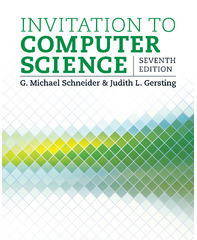 Cengage Learning’s Invitation to Computer Science is a survey of the fundamental concepts of computer science, including social and ethical issues. Instruction progresses sequentially through six “Levels.” Concepts build upon one another and increase in complexity. An accompanying Laboratory Manual provides 20 lab activities that complement instruction and clarify concepts presented across Levels 1-5.
Cengage Learning’s Invitation to Computer Science is a survey of the fundamental concepts of computer science, including social and ethical issues. Instruction progresses sequentially through six “Levels.” Concepts build upon one another and increase in complexity. An accompanying Laboratory Manual provides 20 lab activities that complement instruction and clarify concepts presented across Levels 1-5.
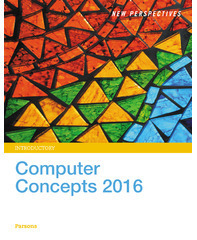 Cengage Learning’s New Perspectives on Computer Concepts 2016, Comprehensive, begins with an introduction, “The Digital Revolution,” that provides the history of digital technology and its role in social, political, and economic change. Subsequent instruction is presented in 11 units that address digital content, digital devices, networks, the Web, social media, software, digital security, the ICT industry, information systems, databases, and programming.
Cengage Learning’s New Perspectives on Computer Concepts 2016, Comprehensive, begins with an introduction, “The Digital Revolution,” that provides the history of digital technology and its role in social, political, and economic change. Subsequent instruction is presented in 11 units that address digital content, digital devices, networks, the Web, social media, software, digital security, the ICT industry, information systems, databases, and programming.
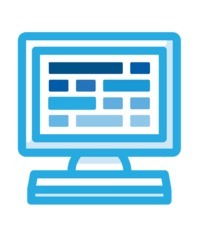 CodeHS’s AP Computer Science Principles covers the fundamentals of computer science and supports instruction in blended learning environments. Students have access to an interactive “JavaScript Library” that explains coding language, including parameters, and provides examples. “Challenge” problems extend students’ learning and the CodeHS “Sandbox” enables students to explore concepts that interest them.
CodeHS’s AP Computer Science Principles covers the fundamentals of computer science and supports instruction in blended learning environments. Students have access to an interactive “JavaScript Library” that explains coding language, including parameters, and provides examples. “Challenge” problems extend students’ learning and the CodeHS “Sandbox” enables students to explore concepts that interest them.
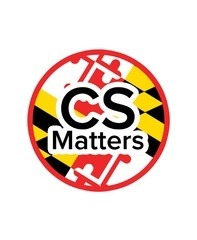 CS Matters in Maryland is an open educational resource (OER); resources are available at no cost at www.csmatters.org. Students learn about internet data; processes for managing, analyzing, and interpreting data; and the use of data to solve real world problems. The course uses the Python programming language; Python 3.4 and PyCharm Community Edition IDE software may be installed at no cost.
CS Matters in Maryland is an open educational resource (OER); resources are available at no cost at www.csmatters.org. Students learn about internet data; processes for managing, analyzing, and interpreting data; and the use of data to solve real world problems. The course uses the Python programming language; Python 3.4 and PyCharm Community Edition IDE software may be installed at no cost.
 Harvard University’s CS50 AP introduces students to the basics of computer science and computer programming languages. Students use their learning to solve real-world problems that are relevant to them. CS50 AP content is video-based and facilitates student self-study and instruction in flipped learning environments. Most CS50 AP resources are available at no cost at https://ap.cs50.net.
Harvard University’s CS50 AP introduces students to the basics of computer science and computer programming languages. Students use their learning to solve real-world problems that are relevant to them. CS50 AP content is video-based and facilitates student self-study and instruction in flipped learning environments. Most CS50 AP resources are available at no cost at https://ap.cs50.net.
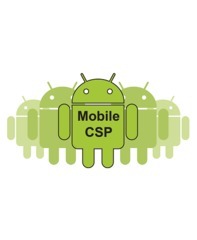 Mobile CSP is a project-based online course that teaches the principles of computer science using MIT’s “App Inventor” visual block language for Android devices. Students create “socially useful” apps that address problems they have identified in their schools or communities.
Mobile CSP is a project-based online course that teaches the principles of computer science using MIT’s “App Inventor” visual block language for Android devices. Students create “socially useful” apps that address problems they have identified in their schools or communities.
 Zulama’s AP Computer Science Principles is an online course that develops students’ understanding of computer science and coding skills through the lens of game design. Instruction requires the installation of GameMaker Studio 2 software, which requires a Windows operating system. Instruction asks students to create new games and build a digital portfolio of their creative work.
Zulama’s AP Computer Science Principles is an online course that develops students’ understanding of computer science and coding skills through the lens of game design. Instruction requires the installation of GameMaker Studio 2 software, which requires a Windows operating system. Instruction asks students to create new games and build a digital portfolio of their creative work.
This table shows the range in the degree to which each course or material aligns to the CSP course framework Learning List’s alignment reports show which standards each material is/is not aligned to and specific citations in each material that have been verified to be aligned to each standard.

In addition to reviewing computer science courses aligned to the College Board’s CSP course framework, Learning List has also reviewed of each of the state-adopted materials that support career and technical education (CTE) Information Technology courses, including computer programming and digital media products. Visit our blog next week for Computer Thinking: Part Two, in which we discuss CTE computer science products.
Subscribe to Learning List for access to the spec sheet, full editorial review and alignment reports for these materials and thousands of other widely used PreK-12 resources.